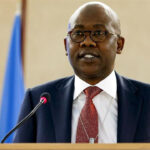The Central Bank of Nigeria (CBN) has directed companies in the Other Financial Institutions sub-sector which include: microfinance banks, primary mortgage institutions and finance companies to adopt a uniform accounting system. The directive, which came last week, according to the apex bank is targeted at ensuring that microfinance banks alongside other financial institutions align with standards already set for the deposit money banks.
The implication, according to analysts, is that temporal access to funds for other financial institutions to cover some shortfalls in their balance sheets or to meet some regulatory requirements will no longer be possible since all the banks will be expected to hold their annual general meetings at the end of every year.
Essence of the policy
The move is to avoid regulatory arbitrage and provide a level playing field for all operators in the financial sector. The circular, signed by the Director, Financial Policy and Regulation Department, Mr. Chris Chukwu said, “It has become necessary to adopt a uniform accounting year-end in the Other Financial Institutions sub-sector. In this regard, the CBN circular number BSD/DIR/GEN/CIR/VOL.2/004 of June 18, 2009, requiring all banks and discount houses in Nigeria to adopt December 31 as a uniform accounting year-end from 2009 shall henceforth be applicable to OFIs.
“For the avoidance of doubt, all primary mortgage institutions, microfinance banks and finance companies are required to adopt December 31 as their accounting year-end with effect from December, 2012. Accordingly, directors of OFIs are hereby advised, as a first step, to pass a resolution to that effect and inform the relevant agencies in line with Section 334(4) of the Companies and Allied Matters Act 1990.”
The circular pointed out that a maximum accounting period of 18 months and a minimum of six months were allowed in line with accepted accounting practice during the period of transition.
Accounts must be forwarded to CBN
It added, “OFIs whose accounting year ends on December 31 should as usual, forward their full year’s accounts for CBN approval not later than four months after the year end. Those with year-ends between January and May, 2012 should submit the normal audited accounts for CBN approval and thereafter, submit their audited accounts for the pro-rated period to December 2012.”
It also pointed out that the audited accounts for the pro-rated period should equally be submitted not later than four months after the period-end for CBN approval and subsequent publication, in line with Section 27 and 28 of BOFIA, 1991 as amended.
CBN directed that the audited accounts for the pro-rated period should equally be submitted not later than four months after the period-end for CBN approval and subsequent publication, in line with section 27 and 28 of BOFIA, 1991 as amended.
NSE fires defaulters
The Nigerian Stock Exchange (NSE) had in August last year placed 24 companies on full suspension for failing to submit their financial statements for the year ended December 31, 2010. According to an official of the exchange, the suspension took effect from Tuesday, August 2nd, 2011. Out of the 48 companies placed on technical suspension on July 1st, 2011, 24 of them had submitted their account statements and the technical suspension subsequently lifted.
This brought about the compliance rate to 89 per cent of listed companies. However, full suspension was placed on the remaining 24 companies because they failed to meet the additional one-month deadline given to them.
In addition, NSE said nine companies cutting across six sectors have also been placed on technical suspension for failing to submit their audited accounts for the year ended March 31, 2011.
NSE Chief Executive Officer, Oscar Onyema said it was painful to place companies on suspension, but added that the exchange would ensure that it enforces its rules.
A good initiative?
The Chief Executive Officer, Lambeth Trust & Investment Company Limited, David Imafidon Adonri described the policy as a good initiative aimed at salvaging the financial sector. He recalled, “Before commencement of December 31st uniform accounting year-end for Nigerian banks, there were strong indications that banks were rotating funds among themselves to shore up their balance sheets at financial year end.”
Impact of the policy
Ogiamien said the policy if well managed in the banking industry with bring about transparency and accountability as it has capacity to curtail bad corporate governance. “Everyone is conscious that regulators and other stakeholders are interested in their performance and therefore efforts are on to ensure that each bank rewards its diverse stakeholders adequately,” he noted.
Besides, this will give opportunity to the investing public and shareholders to assess the performance of their institutions as this will usher in an era of competition.
Olufemi Babajide, chairman, National Association of Microfinance Banks (NAMB), Lagos chapter said microfinance banks, particularly those in Lagos, have already adopted the uniform financial year-end.
He said they adopted the policy in 2009 when the CBN first directed deposit money banks to adopt a uniform financial year-end. According to him, adopting a uniform financial year-end will allow for proper evaluation of microfinance banks.
But Tunde Oyediran a financial analyst thinks differently as he stresses that the uniform year-end policy is not a good initiative. Before the commencement of the policy, there were a lot of activities in market but now it has dried the market.
In his view, the policy has paralyzed capital market activities. He said submission of account at different intervals creates activities in the market throughout the year but that the policy has further crippled the market rather than strengthen it.
He urged CBN to reverse the policy to old system saying, “As we all know, in the past it was the banking sector that drove the market but today it has not been and this can be felt in their dividend payments all through the year and it did boost investors’ confidence.”



